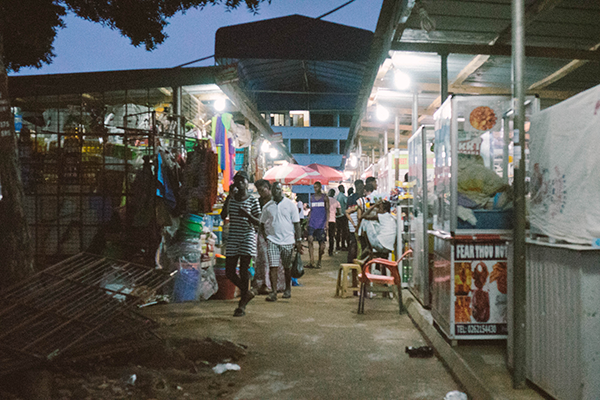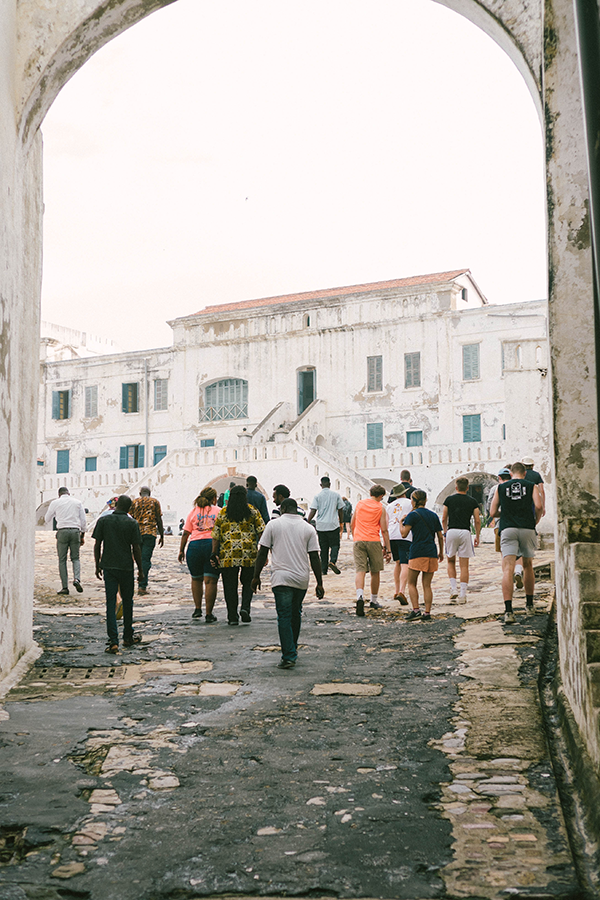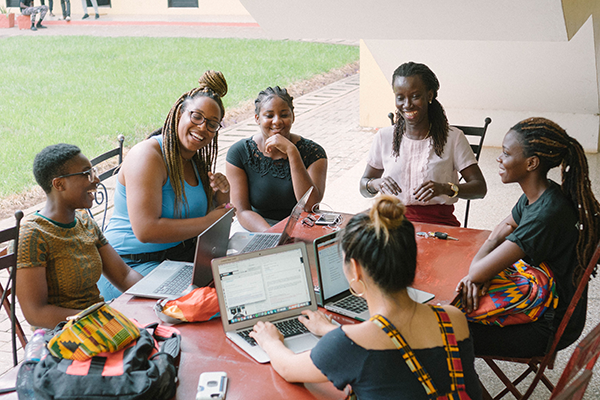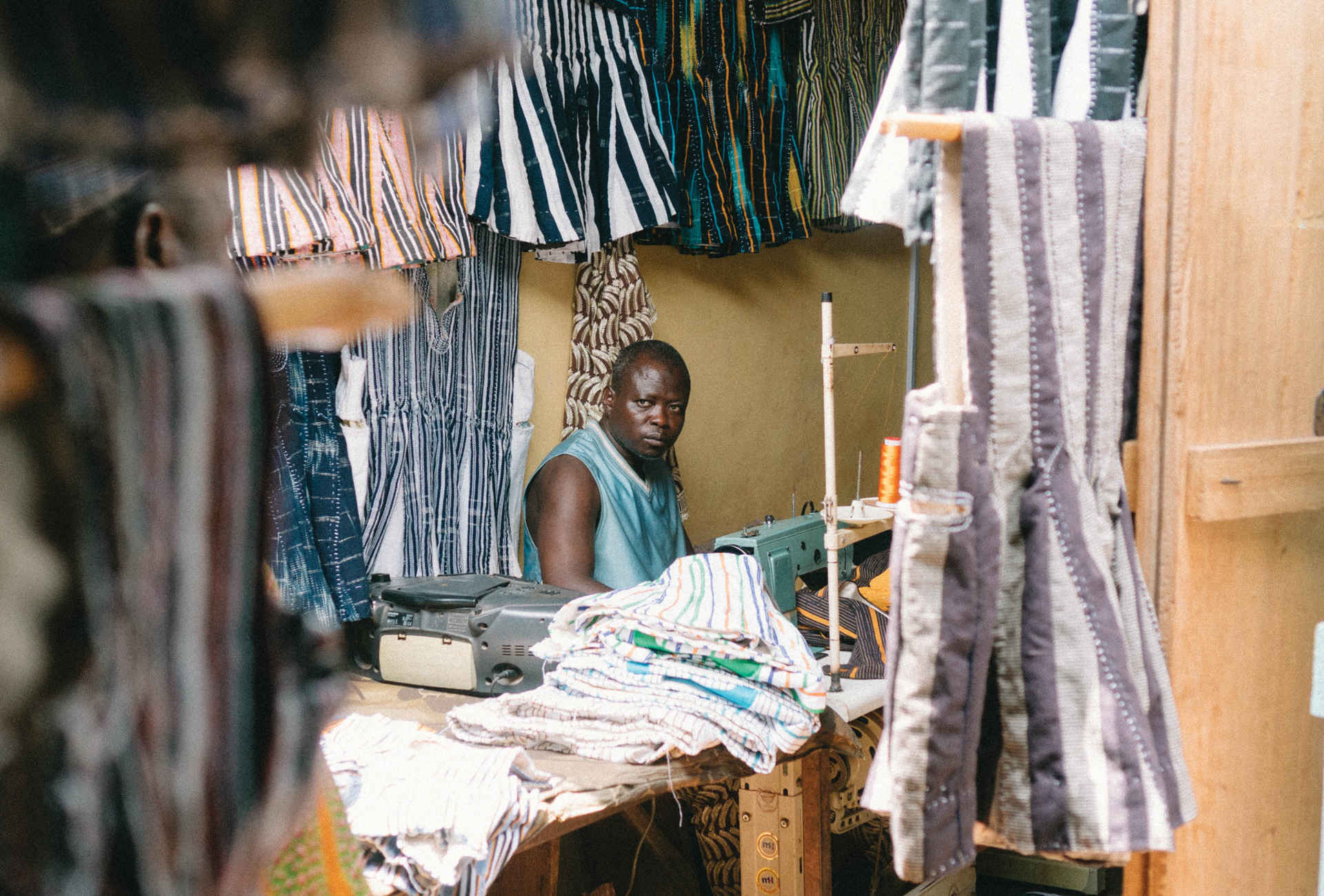This summer, an International Relations and Global Studies senior was awarded the experience of a lifetime when her student research team received the UT President’s Award for Global Learning. Christina Cho and a team of three other undergraduates traveled to Accra, Ghana, for 10 weeks to research colorism and how to mitigate its effect on mental health.
Cho and her fellow researchers conducted interviews with African-American and Asian-American women in Austin and Ghanaian women and men to understand their different experiences with colorism, specifically skin bleaching and hair perming. The project, titled “The Color Complex,” was advised by Kevin Cokley, director of the Institute for Urban Policy and Analysis.
Read about Cho’s experience in Ghana, the research and how she plans to use her experience to create change at both UT Austin and the University of Ghana in the Q&A below.
What is the UT President’s Award for Global Learning?
The PAGL is a competitive program from UT’s International Board of Advisors that provides funding to seven student teams to take on international projects. Projects can be proposed within three themes: expanding existing research, social impact or entrepreneurship.
How did the idea for your research project come about?
Our team is researching colorism, which is the idea that you have more value if you are closer in proximity to whiteness. People all around the world believe that a slimmer nose, bigger eyes, chiseled jaw, straighter hair and lighter skin makes someone more desirable, successful and intelligent.
Examples of colorism include South Korean women between the ages of 19-29 getting double eyelid surgery, nose jobs and jaw reconstruction surgery. Africans, Asians and Latin Americans take skin lightening pills or use skin bleaching creams on themselves and their babies to get lighter skin. African-American women in the U.S. straighten their hair because they’re told it looks appropriate and more professional.

One of my teammates, Timia Bethea, was inspired to tackle the issue of colorism after watching the Grapevine’s YouTube video on skin bleaching, one of the many forms of colorism. Her experience as a black woman of normalizing chemically straightening her hair to be “good enough,” or have value, lead her to retrain the way she looked at beauty and self-worth. She brought forth the idea to research colorism to the team. Our team shared our personal experiences with colorism and how it impacted our self-esteem. Ultimately, we felt it was important to address this serious mental health concern.
How did you conduct your research?
In spring of 2019, we conducted interviews with African-American and Asian-American undergraduate women at UT Austin. In the summer of 2019, we conducted interviews with Ghanaian undergraduate and graduate women and men at the University of Ghana and women and men from the fishing community of Chorkor in Accra, Ghana. After interviewing, we analyzed interview transcripts and wrote a research paper of our findings. The purpose of the interviews at UT Austin was to understand the differences in experiences between different communities of color as colorism is a global issue. The purpose of the interviews in Ghana was to understand peoples’ experiences with skin bleaching and hair perming.

What do you find most fascinating about your research?
I found it most fascinating that people continue to bleach their skin despite their awareness of the negative effects of bleaching such as skin cancer, infections and thinning of the skin. It is also interesting that the language of skin bleaching products has changed into more ambiguous and less severe words such as “skin lightening” or “toning” despite giving the same negative effects.

How do you think this research could make an impact?
Our research will impact families and people’s self-worth as they will have the tools to talk about and internalize their experience being a person of color. This impact will be mobilized through the creation of separate and specialized social campaigns that will run both at the University of Texas at Austin and the University of Ghana. We desire our research to have people do some self-introspection to see why things are normalized.
What was your experience in Ghana like?
It was so unique and heart-warming. I ate so much tilapia, banku, mangoes, and pineapple. I got introduced to my passion for swimming after meeting an incredible swimming coach in Ghana. He trained me. Ghana was a special time for our professors, team and Ghanaian community to connect.
I also got to celebrate 2019 Year of Return with my professor and teammates after visiting the slave dungeons in Cape Coast and Elmina. The Year of Return celebrates the resilience of all the African victims of the Transatlantic slave trade, and seeks to attract millions of African descendants back to Ghana to connect to their ancestry and identity.

What was your favorite moment of your time abroad?
When Dr. Cokley, Dr. Meme Drumwright and her husband, and my other teammates sat on some couches in a circle and talked about everyone’s experience in Ghana so far and what it meant for each person. It was emotionally intimate and I never could have imagined having this special moment with professors I looked up to so much. It was very down to earth and not conventional.
What was the most challenging part of your trip?
When I went to the hospital 3 times from sickness and getting misdiagnosed with malaria…healthcare was rough. It was so difficult to be comforted or feel safe when so many things were out of my control.
How did your experiences abroad change your outlook?
I definitely fell in love with project management. It impacted the way I see my major as an International Relations and Global Studies student by showing me what it means to put aside my habits of working and control over an environment in order to connect with people in a different culture. I also desire to pursue graduate school after this summer.

What advice would you give to other students who are considering studying abroad?
I would say that it is easy to romanticize your international experience before you leave and that may be the most challenging thing once you realize that everything you expected sometimes doesn’t go your way. I advise students that no matter how much research you do on the region you are visiting, stay humble in your understanding because you will have to adjust and relearn a lot of things. I am very fast-paced person who likes to check off things on lists, but Ghana is a very relational country that also takes time when completing tasks. I had to be patient and adjust to a different culture of time and task management.
All photos courtesy of Rebecca Chen.
